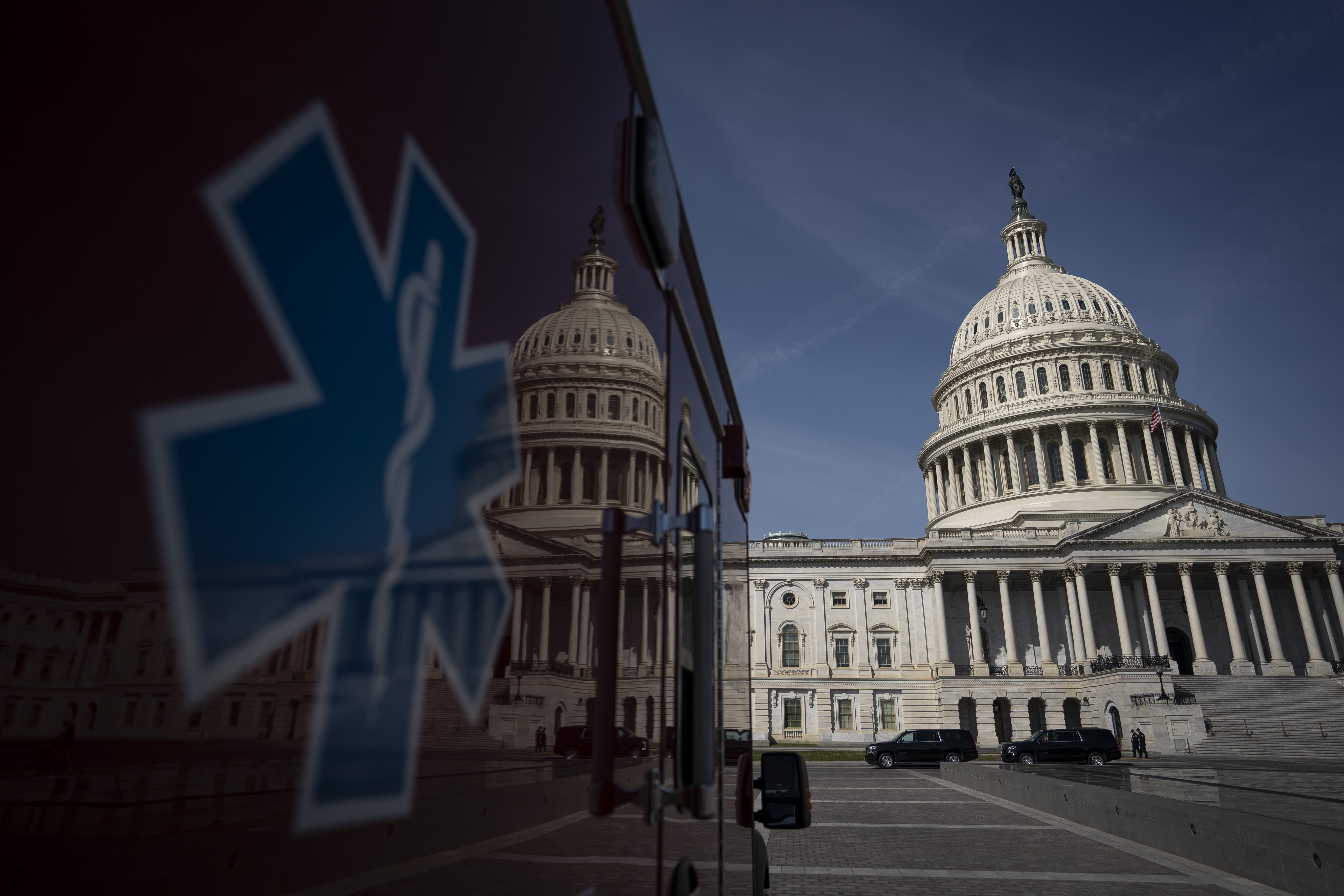Talks between Democrats and Republicans for a massive funding package to combat the impact of coronavirus have stalled, as lawmakers spar over issues like worker protections and funding for states battling the crisis.
“From my standpoint, we’re apart,” House Speaker Pelosi, D-Calif., told reporters earlier Sunday.
A Senate procedural vote on the bill originally scheduled for 3 p.m. ET Sunday has been moved to 6 p.m. President Donald Trump said he would hold a press conference at 5 p.m.
Efforts to forge a deal and pass the bill took on added urgency as several members of Congress, including GOP Sen. Rand Paul, tested positive for the coronavirus.
Congressional aides said that pressure to come to a deal quickly could force the two parties to come to a resolution sooner rather than later.
Senate Republicans last week rolled out a roughly $1 trillion proposal after working closely with the administration, in a bid to slow the potentially catastrophic impact of the coronavirus on the economy. More than 26,000 have tested positive for the illness in the United States, a number that is expected to surge as more tests are distributed. The bill included small business loans, direct payments for individuals and billions in aid for industries like airlines whose businesses have been hit hard by the virus and efforts to stop its spread.
Larry Kudlow, the president’s top economic advisor, said Saturday that the bill could end up pumping $2 trillion into the economy through government spending and Federal Reserve action.
Senate Republicans and Democrats worked all weekend on a revised bill, working towards to goal of a formal vote on Monday. But by Sunday, there were still disagreements, with Democrats arguing the bill shortchanges workers.
“I oppose this bill as it currently stands and am urging Republicans to return to the negotiating table so we can reach an agreement that does much more to support the workers, families, and communities on the front lines of this pandemic,” said Sen. Patty Murray, D-Wash.
The proposed bill now sets aside an up to $500 billion fund to support “severely distressed business.” That includes $58 billion for passenger and cargo airlines and $17 billion for businesses critical to maintaining national security, according to a draft bill obtained by CNBC.
A previous draft bill allocated $150 billion for distressed businesses, in addition to $58 billion for airlines and cargo carriers.
While the new proposed bill adds certain restrictions that Democrats had pushed for – like a ban on stock buybacks while a loan is outstanding and maintaining payroll “to the extent practicable” – those concessions were not enough.
“In the midst of an unprecedented national crisis, Republicans can’t seriously expect us to tell people in our communities who are suffering that we shortchanged hospitals, students, workers, and small businesses but gave big corporations hundreds of billions of dollars in a secretive slush fund,” said Murray, whose home state is one of the hardest-hit by the disease’s outbreak.
The Democratic-led House Appropriations Committee previously criticized the Republican draft bill for “lack of supplemental funding for federal, state and local response.”
Airline companies were also disappointed in the bill, which offered aid primarily in the form of loan and loan guarantees, rather than the mix of cash grants and loans they have sought.
The bill also left open the possibility of the government participating in the gains of its loans, including through warrants, stock options or equity. Trump has before said he would not be opposed to taking an equity stake in companies the government extends aid to.
The CEOs of American, Delta, Southwest, United and others on Saturday said the industry would have to furlough workers without $29 billion in “worker payroll protection grants.” If they receive that amount in that form, they said they wouldn’t furlough employees through Aug. 31.
Executives over the last week have sent out a series of grim letters to employees and congressional leadership, saying if the government doesn’t act fast, it could cost jobs.
